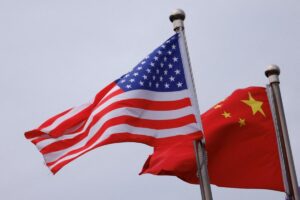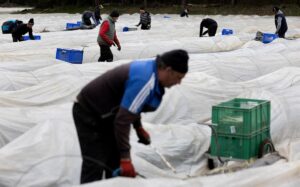
WASHINGTON — Surging trade uncertainty is worsening the already serious challenges of rising debt and sluggish growth in emerging markets and developing countries, according to Indermit Gill, chief economist of the World Bank.
Gill said growth forecasts for advanced economies are rapidly being downgraded — and emerging markets aren’t far behind — after a wave of tariffs announced by US President Donald Trump triggered global concern.
During the IMF-World Bank Spring Meetings in Washington this week, much of the discussion centered on fears over the economic fallout from these century-high tariffs and retaliation from China, the European Union, and Canada.
Earlier this week, the International Monetary Fund (IMF) lowered its global growth projection to 2.8% for 2025, half a point below its January forecast, citing escalating trade tensions as a major factor.
Although the World Bank will release its own updated forecast in June, Gill noted that early consensus among economists points to significant cuts in global trade and growth projections. He highlighted that today’s uncertainty indices have surged to their highest since before the 2008 financial crisis.
What sets this current crisis apart, Gill explained, is that it stems from policy decisions — meaning it can be reversed if leaders act wisely.
Global trade growth is now expected to slow to just 1.5%, a steep fall from the 8% growth rates seen in the 2000s. At the same time, foreign direct investment (FDI) into emerging markets has dropped from 5% of GDP during boom years to just 1% today.
Gill warned that high debt levels are putting about half of the 150 developing and emerging countries at risk of default, especially as interest rates remain high and growth slows. Emerging markets are now spending 12% of GDP on interest payments — double the figure from 2014 — while poorer nations spend as much as 20% of GDP servicing debt, leaving less for education, healthcare, and development programs.
Given these risks, Gill strongly urged developing countries to negotiate trade deals that lower their own tariffs, especially with the US. World Bank models suggest that liberalizing trade now could significantly boost economic growth and help offset some of the mounting pressures from debt and slow investment.





















No comment yet, add your voice below!